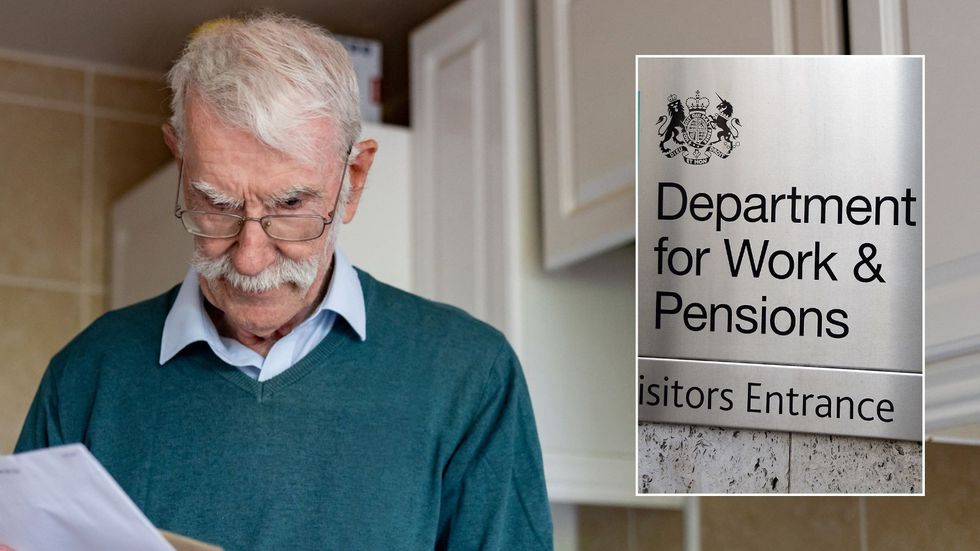Labour has hinted it will proceed with plans to reform disability benefits, which were drawn up by the last Conservative Government, despite a High Court ruling that found the original consultation process “unlawful”.
The Government’s stance comes after Justice Calver ruled in favour of disability activist Ellen Clifford, who challenged the Department for Work and Pensions’ (DWP) consultation process.
While Labour had previously not declared its position on the inherited proposals, the party has now indicated it will maintain the planned reforms, though a new consultation process will be required.
The proposed changes would reduce disability benefits, such a Personal Independence Payment (PIP) by hundreds of pounds for new applicants by 2029, compared to current payment levels.
These reforms would alter the Work Capability Assessment (WCA) system by reducing emphasis on mobility and movement difficulties when evaluating disability levels.
Do you have a money story you’d like to share? Get in touch by emailing [email protected].

The Government has hinted reforms to disability benefits could still be on their way despite a recent High Court ruling
GETTY
The changes are expected to affect more than 450,000 disabled people, with most facing potential losses of up to £416 monthly at current benefit rates, disability rights activists claim.
Labour has committed to finding the savings outlined in these measures, though it remains unclear whether they will consult on all original proposals or only those the previous government chose to pursue.
Justice Calver’s judgment repeatedly described the DWP consultation as “misleading”, “rushed” and “unfair”. The court found that the previous Government had misled consultees by claiming the measures were solely aimed at helping disabled people into work.
Internal DWP documents revealed during the judicial review showed that cost savings were a key motivation behind the changes. The ruling highlighted that consultation documents failed to clearly outline the financial impact on disabled people.

Disabled benefit payments could be impacted if the proposed overhaul is implemented
GETTY
The eight-week consultation period was also deemed too short by the court. A Government spokesperson responded to the verdict, stating: “The judge has found the previous Government failed to adequately explain their proposals.”
The spokesperson confirmed plans to re-consult on the WCA descriptor changes “addressing the shortcomings in the previous consultation, in light of the judgment”. They emphasised: “The Government intends to deliver the full level of savings in the public finances forecasts.”
However, the High Court ruling does not require the Government to abandon the proposals entirely, though a new consultation would be necessary to proceed. Nearly six months after the original consultation ended, the Office for Budget Responsibility (OBR) revealed stark forecasts about the reforms’ impact.
Projections from the OBR estimate that just 15,400 disabled people would find paid work through the reforms by 2029. This figure stands in sharp contrast to the DWP’s estimate that over 450,000 disabled people would be affected by the benefit cuts during the same period.
Svetlana Kotova, director of campaigns and justice at Inclusion London, urged the Labour government to reconsider its approach. “We urge the Labour government to start working with disabled people and to use this ruling as an opportunity to rethink their approach to social security,” she said.
She warned: “It is not a matter of simply explaining the changes in a different way – they must stop pursuing Tory policies that do not work and will cause disabled people so much harm.”
LATEST DEVELOPMENTS:

Britons are bracing themselves for further reform to the DWP
GETTY
Kotova emphasised that any government would need to be transparent about plans to make savings by “unleashing misery on disabled people”. The WCA policy changes would affect more than 450,000 disabled people, who are described as “already some of the poorest and most excluded in our society”, she shared.
Inclusion London warned that implementing these policies would lead to a regression of rights for disabled people. The organisation highlighted that the changes would conflict with the UK’s obligations under the UN Convention on the Rights of Disabled People.
Chancellor Rachel Reeves has previously cited the Government’s intention to plug the £22billion “black hole” in the public finances. She has came under renewed pressure to meet this target due to last week’s soaring gilt yields pushing borrowing costs up, giving her less headroom to do so.
During her Autumn Budget, the Chancellor said: “First, we inherited the last Government’s plans to reform the Work Capability Assessment. We will deliver those savings as part of fundamental reforms to the health and disability benefits system that the Work and Pensions Secretary will bring forward.”